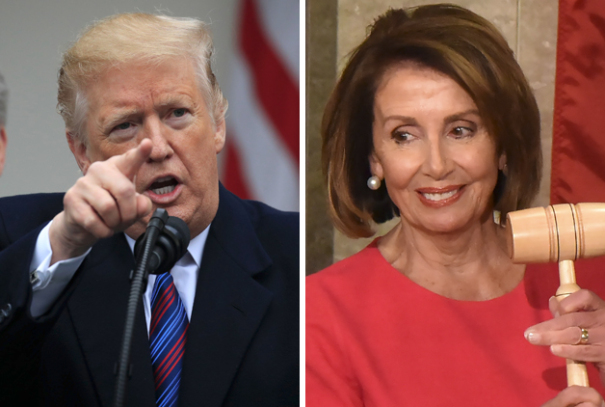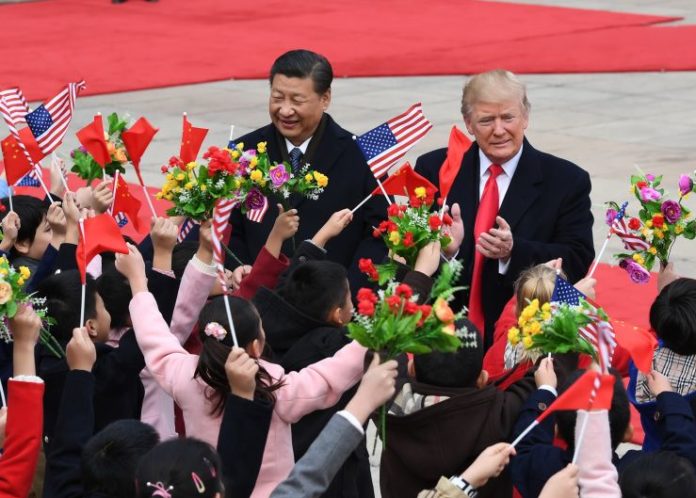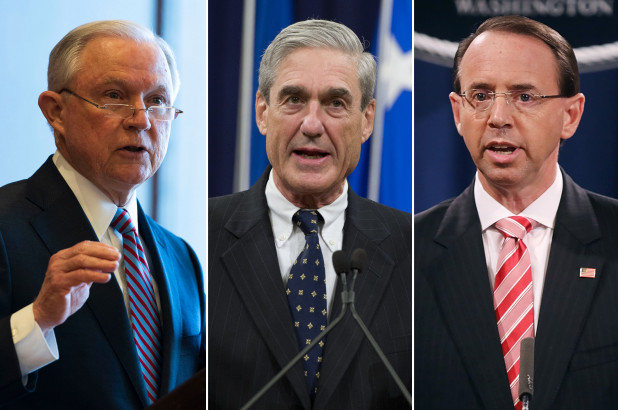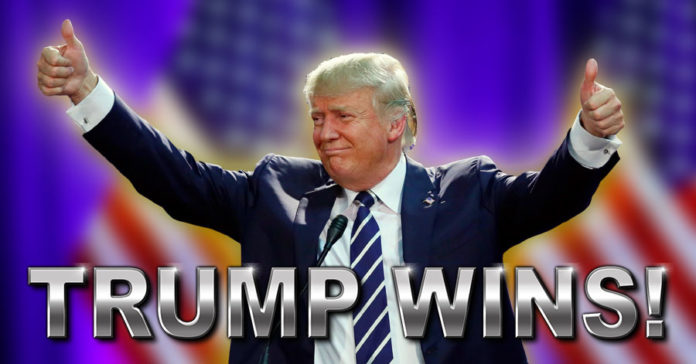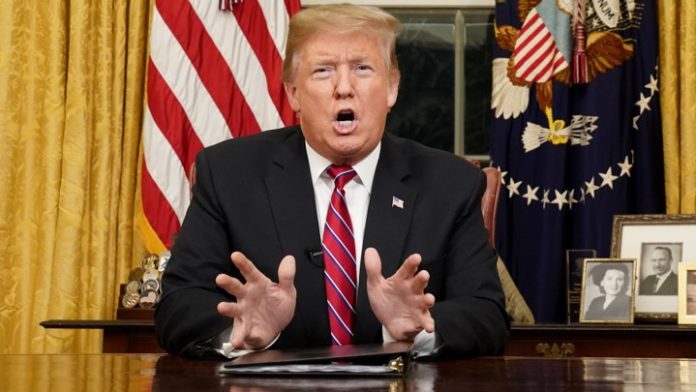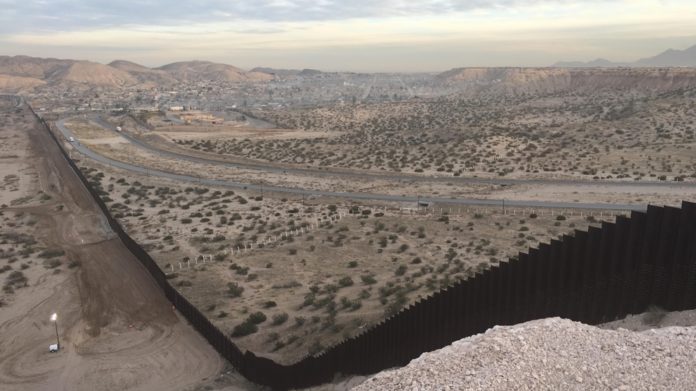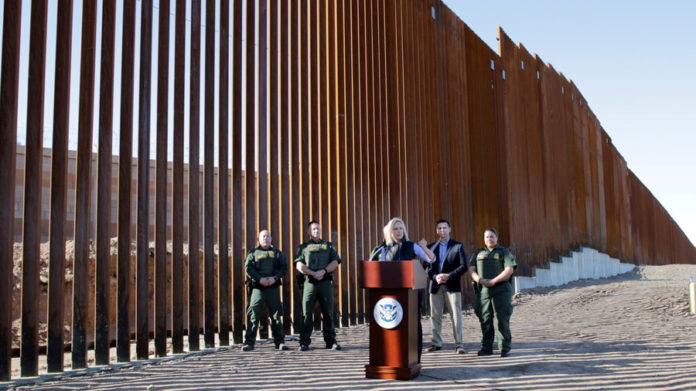The Democrats’ theme for the evening was ‘facts, not fear.’ Many major media also adopted the same theme.
A humanitarian and security crisis at the southern border must be addressed, President Donald Trump told the country last night in his first Oval Office address. His speech also addressed the flow of drugs and crime, the high rates of abuse associated with human trafficking, and the use of children as pawns to thwart laws protecting the U.S. border from illegal entry.
“This is the tragic reality of illegal immigration on our southern border. This is the cycle of human suffering that I am determined to end,” Trump said, laying out a plan that includes drug-detection technology, increased border agents and immigration judges, $800 million in humanitarian assistance and medical support, legislative changes to ensure the safe return of children who enter the country illegally, and $5.7 billion for a “physical barrier” to help stop illegal entry.
Speaker of the House Nancy Pelosi and Senate Minority Leader Chuck Schumer quickly responded to the address by saying there’s not really a crisis at the border. They told him that he should end the governmental shutdown, and said they could work on border security concerns in the months to come.
While pundits like to discuss who looked good and who looked bad in last night’s televised addresses, it’s worth pausing in appreciation of the various political leaders for taking part in the debate over national security and the extent of the problem caused by porous borders. Sometimes debates need to take place behind closed doors, but when competing ideologies are on display, it serves as a healthy public education about important issues that affect citizens’ lives.
The Democrats’ theme for the evening was “facts, not fear.” Many major media also adopted the same theme. The coordinated talking point began hours if not days before the speech even aired, with CNN’s Alisyn Camerota saying yesterday morning, “Fact-checkers are eating their Wheaties and getting extra rest since they will be working overtime tonight to separate fact from fiction on this border situation.”
As soon as the speech ended, White House press corps mascot Jim Acosta recited his rather groan-inducing rehearsed line that Trump’s address “should have come with a Surgeon General’s warning that it was hazardous to the truth.”
But when it came time to back up this talking point about factual inaccuracies, the media whiffed. Most of the alleged “fact” “checks” were instead critiques of opinions. Many critiqued things not included in Trump’s speech. And sometimes the “fact” “checks” dinged Trump for saying completely true things. Take the Washington Post, for instance:
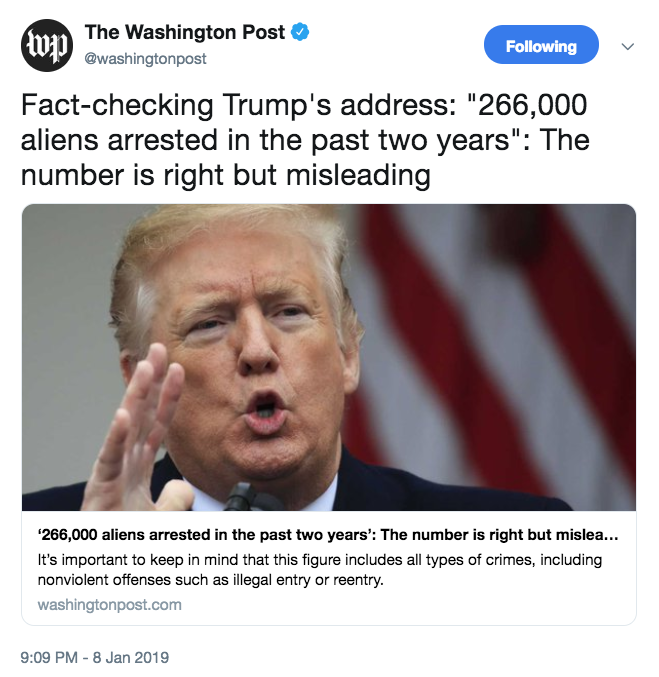
The fact checkers at the Washington Post characterized this Trump claim, which they admitted was factual, as “misleading” because, and I quote, “this figure includes all types of crimes.” You can’t make it up.
Here are several other examples of the media botching their alleged fact checks.
Politico’s Fact Check Is So Bad It’s Almost Funny
Politico’s Ted Hesson did such a bad “fact” “check” that it’s almost impressive. Among the things he checked as “not true” was Trump’s contention that there’s a crisis on the border. I’m not joking.
To quote Michael Tracey, “Stop fact-checking normative claims and subjective, value-based assertions! It degrades the entire enterprise of fact-checking! Fact-checking is obviously needed, but not the bizarre new version invented by oblivious, self-satisfied journos!”
Even worse for Hesson, however, was his reasoning. He said it’s “not true” that there’s a crisis because the number of people caught crossing is below what it was during Obama. It’s as if he hasn’t heard a single administration official in recent weeks explaining that the reason why the Department of Homeland Security is burdened is not because illegal crossings are up in general, but because of the type of crossings, such as unaccompanied minors and family units from Central America that, due to our laws, can not be returned to their homes.
Hesson is apparently unaware that resources needed for dealing with the illegal crossings by single adult males from Mexico that may have dominated earlier years are completely different than those needed for family units who claim asylum status after being caught in the country illegally.
He also said it was wrong to say that “Our southern border is a pipeline for vast quantities of illegal drugs” because most of the drugs come through legal points of entry. Well, Ted, that’s probably why President Trump said that part of his request from Democrats was for drug-detection technology.
Finally, Hesson said it was wrong to say that Schumer “has repeatedly supported a physical barrier in the past” even though that’s absolutely true. Hesson’s reasoning makes no sense. He admits Schumer voted, for example, for the construction of nearly 700 miles of a physical barrier in 2006 but says Trump said that wasn’t enough. Therefore, Trump’s accurate claim that is not misleading is judged to be “misleading.” Again, I’m not joking.
NYT Fact Checks a Speech No One Gave
A New York Times article originally headlined “Trump Cites Misleading Statistics of Crisis And Crime Along Border” failed to explain what the misleading statistics were. Perhaps that explains why they changed the headline to “Trump Escalates Border Wall Fight in National Address.”
In a rather shrill opinion piece billed as straight news, Peter Baker claimed, without evidence, that describing the situation as a crisis “raised credibility questions.” Then he went on to slay strawmen and other items the president didn’t even mention.
He got the memo Hesson and other reporters clearly received suggesting that non-partisan reporters who are in no way taking the exact same side in the debate as Schumer and Pelosi talk about general border crossing numbers. Like these other reporters, Baker failed to mention the actual problems Homeland Security Secretary Kirstjen Nielsen has described, including spikes in illegal drugs, a 25 percent increase in unaccompanied children last year, and a 50 percent increase in family units. As she has said, for the first time in history, family units and children comprise the vast majority of apprehension.
Baker also wrote the same non-sequitur about heroin entering through legal ports of entry. I don’t mean to be insulting, but did they even listen to the president’s speech before declaring it false? Here’s what Trump actually said, instead of what they imagined him to say:
Our southern border is a pipeline for vast quantities of illegal drugs, including meth, heroin, cocaine, and fentanyl. Every week, 300 of our citizens are killed by heroin alone, 90 percent of which floods across from our southern border. More Americans will die from drugs this year than were killed in the entire Vietnam War… The proposal from Homeland Security includes cutting-edge technology for detecting drugs, weapons, illegal contraband, and many other things… The border wall would very quickly pay for itself. The cost of illegal drugs exceeds $500 billion a year — vastly more than the $5.7 billion we have requested from Congress…
Heck, here’s what Nancy Pelosi even admitted: “we can install new technology to scan cars and trucks for drugs coming into our nation.” Trump said he’s asking for “cutting-edge technology for detecting drugs” and Pelosi said, “we can install new technology to scan cars and trucks for drugs coming into our nation.”
How does it “raise credibility questions” to say these true things? And how are these true things countered by saying, as Baker does, “The majority of heroin enters the United States through legal ports of entry, not through open areas of the border”? Neither Trump nor Pelosi said that they did!
In the minds of many group thinking reporters, Trump only cares about a wall. But if they would actually read the proposal he sent to Congress on January 6, they could read that he seeks the following things in addition to 234 miles of physical barrier:
- 75 additional immigration judges and support staff to reduce the immigration backlog,
- 750 additional Border Patrol agents,
- 2,000 additional law enforcement personnel and support staff to address gang violence, smuggling, trafficking, and the spread of drugs,
- 52,000 detention beds,
- $800 million to address urgent humanitarian needs,
- $675 million for “Non-Intrusive Inspection (NII) technology at inbound lanes at U.S. Southwest Border Land Ports of Entry” to “allow CBP to deter and detect more contraband, including narcotics, weapons, and other materials that pose nuclear and radiological threats”
- statutory changes to permit in-country processing capacities for asylum processing
“Fact” “checking” the president by saying that “actually” the drugs are coming through legal ports of entry when that is precisely what Trump’s counter-narcotics plan says is “raising credibility questions,” but not of the president.
Finally, Baker brings up a State Department report on terrorism as a way to hit back at Trump’s Oval Office address, which is fine, except for the little problem that Trump didn’t mention terror in his address.
Mocking The Harming Of Children To Own The Cons
Here’s another media fact check from CNN:
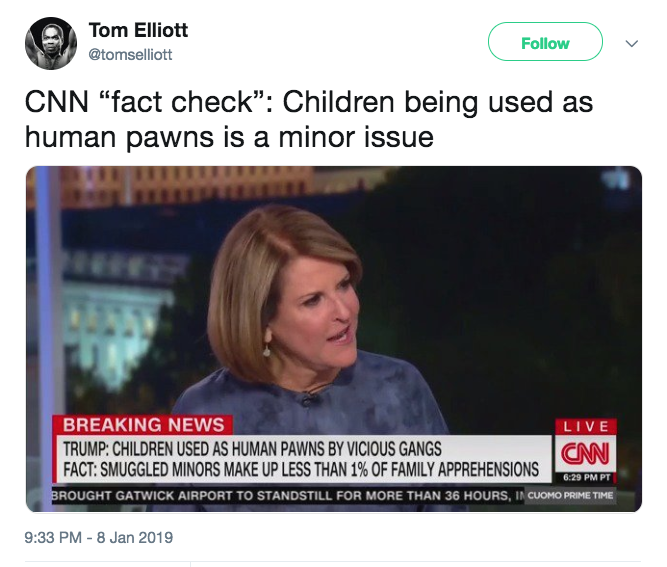
Trump said, “Last month, 20,000 migrant children were illegally brought into the United States — a dramatic increase. These children are used as human pawns by vicious coyotes and ruthless gangs.”
No one is disputing that 20,000 children were illegally brought into the United States last month, nor that it’s a dramatic increase. The question is whether the use of these children as human pawns by coyotes and gangs is a problem.
To CNN, the “fact” “check” is to counter with a non-sequitur of “smuggled minors make up less than 1% of family apprehensions.” It doesn’t tell us how many of the 20,000 children were smuggled last month — maybe “only” fewer than 200.
But the “pawn” issue is so much more than smuggling. It’s about how our laws induce people to travel with children as an insurance policy that protects them if they’re caught. And yes, coyotes and gangs take advantage of these laws and respond accordingly. They may be bad guys, but they’re not stupid. Thanks to our laws, we’ve incentivized this use of children in illegal border migration.
Accidentally Claiming Trump Is Underplaying the Crisis
At one point, a media outlet was alleged to have made the following fact check:
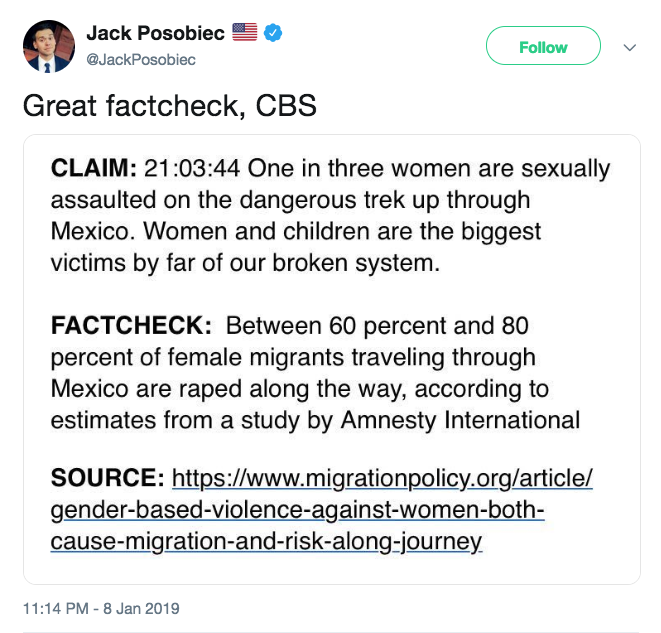
According to this fact check, Trump was wrong to say that “One in three women are sexually assaulted on the dangerous trek up through Mexico” because it’s actually as many as eight in ten. While Amnesty International’s numbers are truly horrifying to contemplate, the Department of Homeland Security told reporters that its numbers were from Doctors Without Borders.
Those numbers also showed that 17 percent of men are also sexually assaulted during the journey through Mexico. While both groups’ numbers are bad, their difference is a good reminder of the imprecision of many of these fact checks and why reporters should be cautious when calling other people liars.
The Importance of Keeping Calm
Checking facts is extremely important. It’s a vital function of journalism and one that was sorely missing for a good eight years of the Obama presidency. It’s not that journalists have over-corrected — a genuine return to fact-based reporting wouldn’t just be welcome but preferable. The problem is that they’re extremely confused about the difference between value assessments and facts. They also struggle with basic logic and reading comprehension.
Yes, we know that they’re out of their minds with rage about Trump. That’s a trait many others share, but it’s not a good trait for someone who is a journalist or charged with checking facts.
If reporters genuinely wanted to assess the truth of a given debate, they wouldn’t announce a shared campaign with Democrats, right down to the shared messaging of “facts, not fear.” They wouldn’t do such a horrible job of fact-checking a very difficult topic.
They would understand that a group of people who have failed to accurately cover — and in some cases people who completely botched — dozens of different angles on the immigration story are not in the best position to run “fact” “checks” of anyone else. And they’d do a far better job of fact-checking their ideological allies such as Pelosi, whose very first “fact” was not true.
But other than that, great job, guys.

